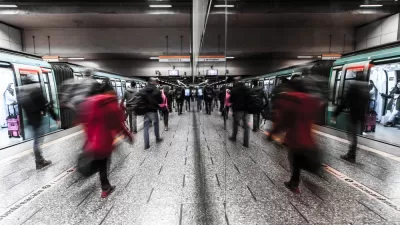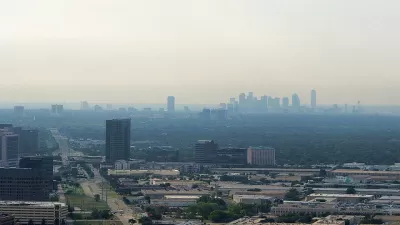Washington D.C.'s suburbs, where so-called "super zips" of highly educated and highly paid households abound, have become an extreme example of the growing physical segregation of American metros into areas of poverty and affluence.
Across the Unites States, the decline of middle-income neighborhoods is a worrying trend. But in the D.C. metro area, economic segregation is especially acute. "The growing number of people living in Super Zips here is redefining and reshaping the region, turning modest inner-suburb neighborhoods into upscale enclaves and outer-suburb farmland into sprawling housing developments, often gated," write Carol Morello and Ted Mellnik.
“'It’s a megalopolis of eggheads,' said William H. Frey, a demographer with the Brookings Institution. Frey said Washington is an example of how the country is compartmentalizing itself into clusters of people with different backgrounds and world views."
“It’s a magnet for people who grew up elsewhere and came here because they want to be in a place that has an atmosphere of intellectual curiosity. But it means we’re somewhat isolated. A lot of people here may study and advocate for what’s going on in the rest of the country, but they can’t feel what’s going on if it doesn’t touch them.”
FULL STORY: Washington: A world apart

Maui's Vacation Rental Debate Turns Ugly
Verbal attacks, misinformation campaigns and fistfights plague a high-stakes debate to convert thousands of vacation rentals into long-term housing.

Planetizen Federal Action Tracker
A weekly monitor of how Trump’s orders and actions are impacting planners and planning in America.

In Urban Planning, AI Prompting Could be the New Design Thinking
Creativity has long been key to great urban design. What if we see AI as our new creative partner?

San Francisco Mayor Backtracks on Homelessness Goal
Mayor Dan Lurie ran on a promise to build 1,500 additional shelter beds in the city, complete with supportive services. Now, his office says they are “shifting strategy” to focus on prevention and mental health treatment.

How Trump's HUD Budget Proposal Would Harm Homelessness Response
Experts say the change to the HUD budget would make it more difficult to identify people who are homeless and connect them with services, and to prevent homelessness.

The Vast Potential of the Right-of-Way
One writer argues that the space between two building faces is the most important element of the built environment.
Urban Design for Planners 1: Software Tools
This six-course series explores essential urban design concepts using open source software and equips planners with the tools they need to participate fully in the urban design process.
Planning for Universal Design
Learn the tools for implementing Universal Design in planning regulations.
Gallatin County Department of Planning & Community Development
Heyer Gruel & Associates PA
JM Goldson LLC
Mpact (founded as Rail~Volution)
City of Camden Redevelopment Agency
City of Astoria
Jefferson Parish Government
Camden Redevelopment Agency
City of Claremont




























